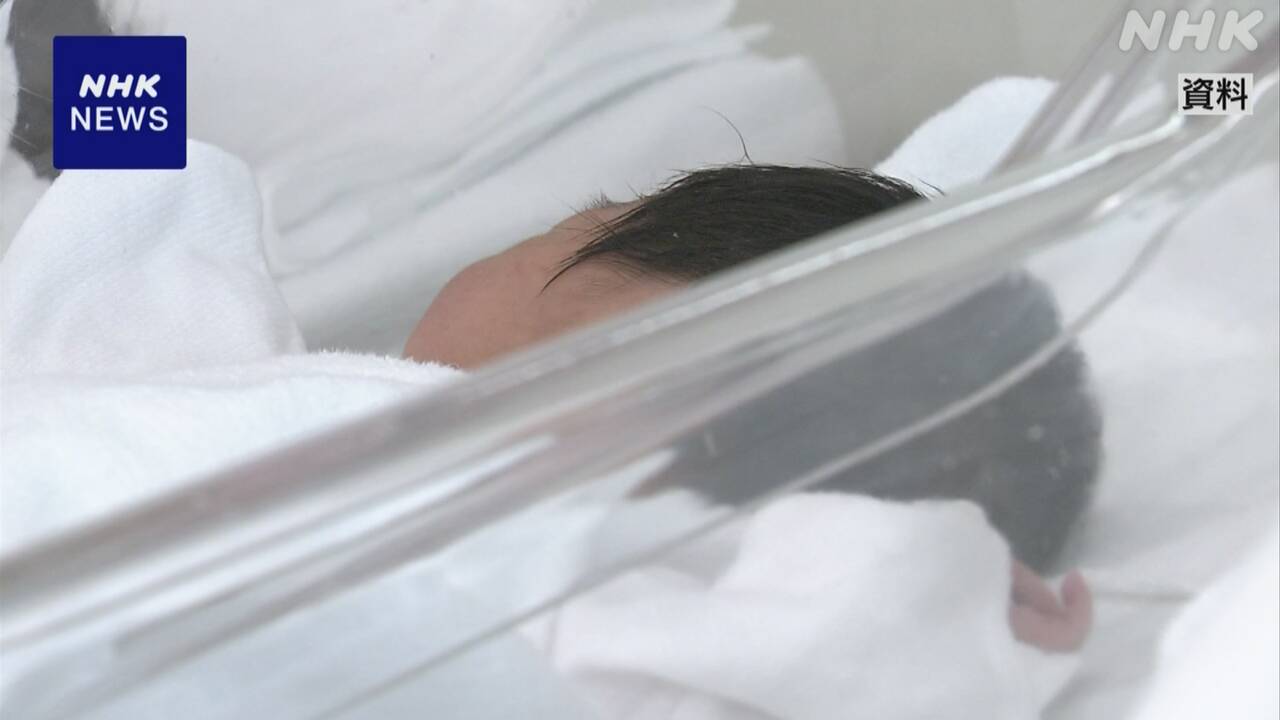Last year, the Japan Research Institute, a major think tank, estimated that the number of births, which indicates the number of children born in a year, would be 726,000 nationwide, the lowest since statistics began.
The Japan Research Institute estimated the number of births over the past year based on the number of children born from January to September of last year published by the Ministry of Health, Labor and Welfare.
According to this report, the number of Japanese births last year is expected to be 726,000 nationwide, a decrease of 5.8% from the previous year by just over 40,000, and the highest number since the government began keeping statistics in 1899. This means that it is expected to decrease.
Furthermore, it is estimated that the ``total fertility rate'', which is an indicator of the number of children a woman will have in her lifetime, is expected to decline to around 1.20.
In addition, the number of marriages increased for the first time in three years, reaching 504,930 couples, but last year it is estimated to be 476,000 couples, down 5.8% from the previous year, and is expected to start declining.
Takumi Fujinami, senior research scientist at the Japan Research Institute, who conducted the estimate, said, ``The number of marriages has decreased as people have given up or postponed marriage due to unstable employment due to the coronavirus pandemic, and now, two or three years later, the number of marriages has decreased. "While the number of working women is increasing, the burden of housework on women remains the same, and the number of people who are refraining from having children may be increasing."
On top of that, he added, ``If women earn lower wages and are more likely to work part-time, men will earn more if they work for a company longer, so in the end, the burden of the household remains on women.In order to have more children, ``We need to have the idea that men and women work equally and support their families, and I think it is important for companies to create an environment for this.''
Chief Cabinet Secretary Hayashi: ``We are on the brink of taking countermeasures''
At an afternoon press conference, Chief Cabinet Secretary Hayashi said, ``The declining birthrate is in a critical situation, and the next six years or so until we enter the 2030s, when the young population will rapidly decline, will determine whether we can reverse the declining birthrate trend.'' This is our last chance, and we are on the brink of taking action."
He added, ``We would like to strengthen measures on an unprecedented scale, with a focus on increasing the incomes of the younger generation.In addition, it is important to work to increase the momentum in society as a whole to support children and families raising children.'' We would like to move forward as two wheels of the same vehicle."

